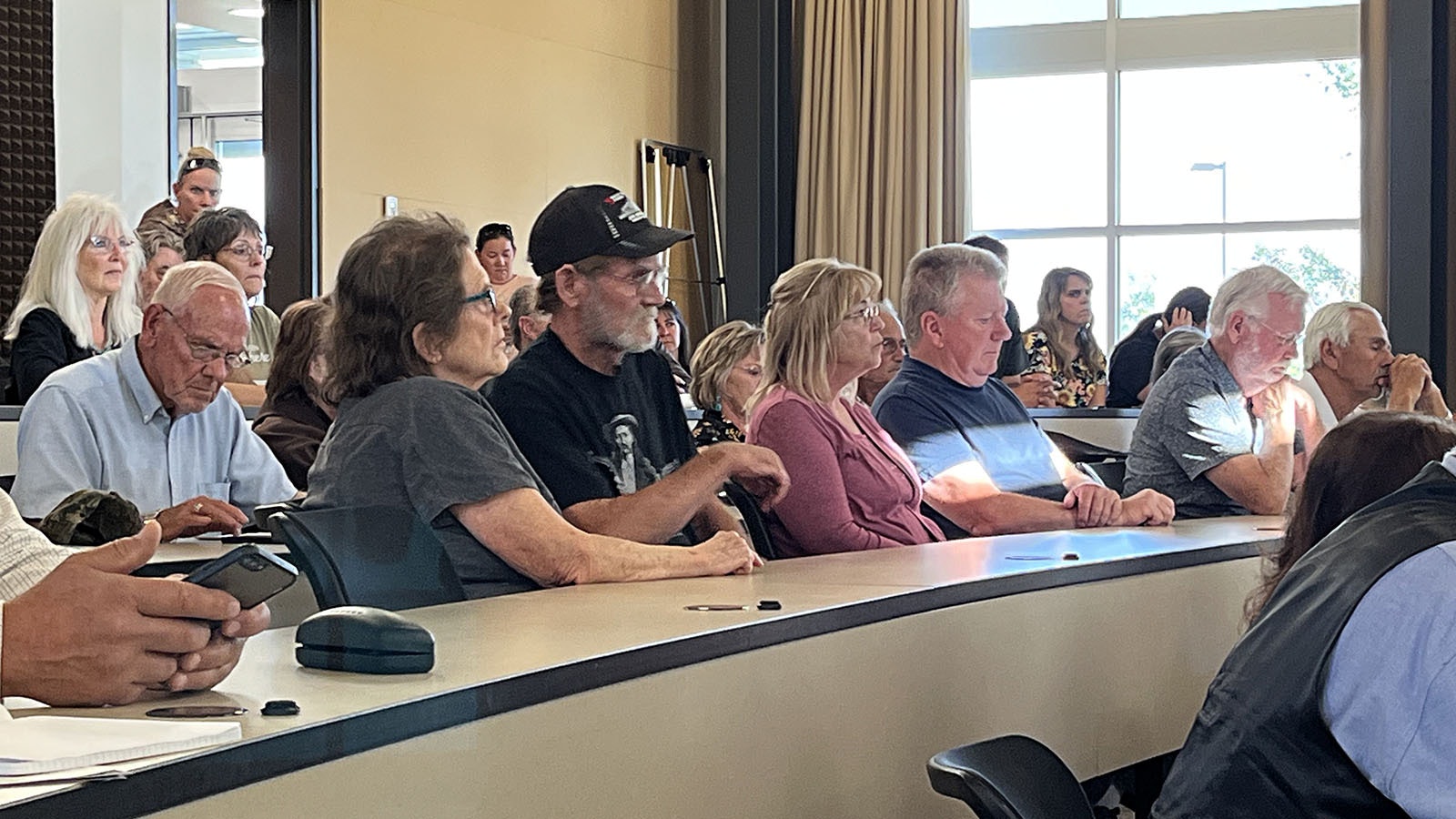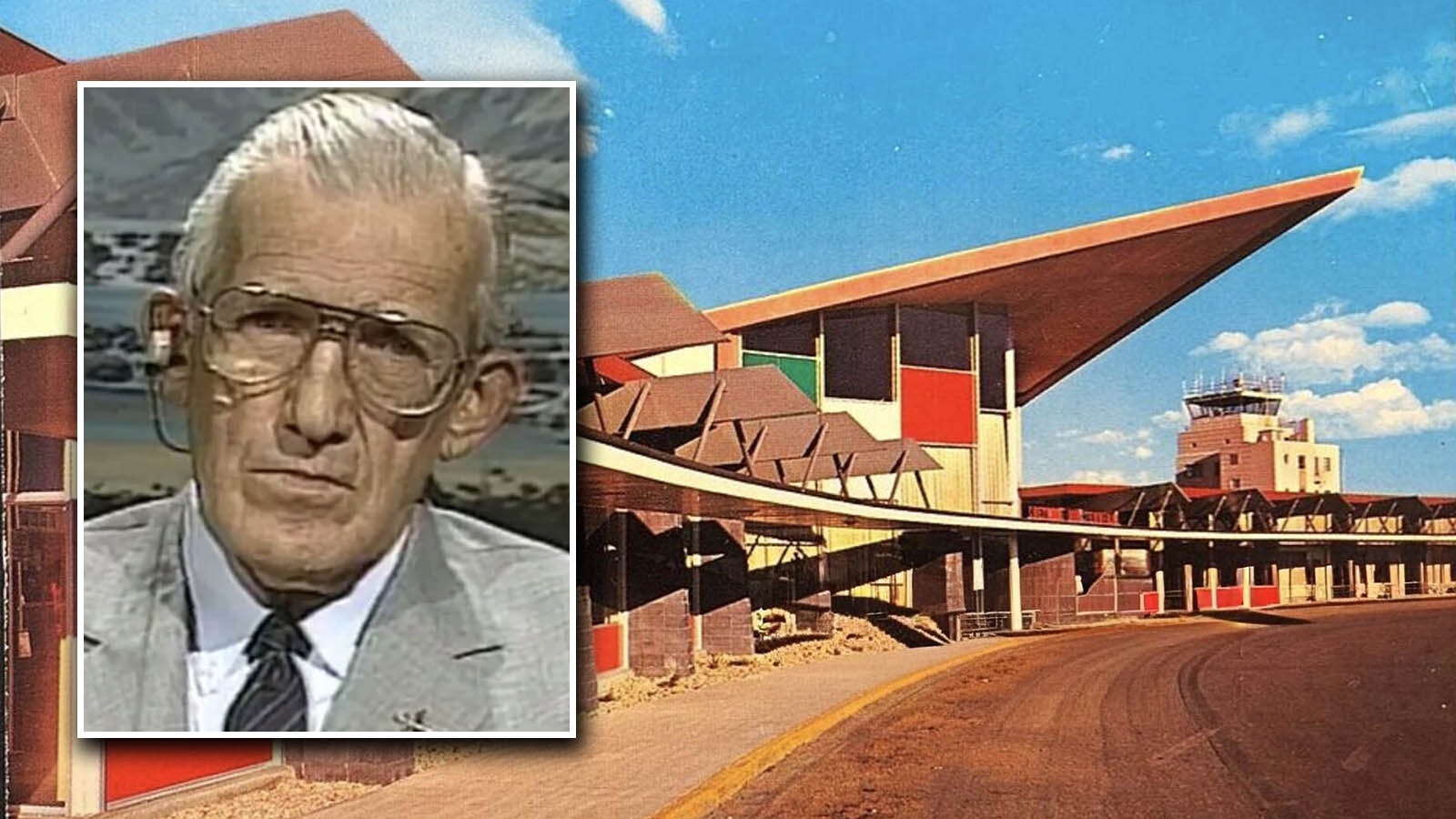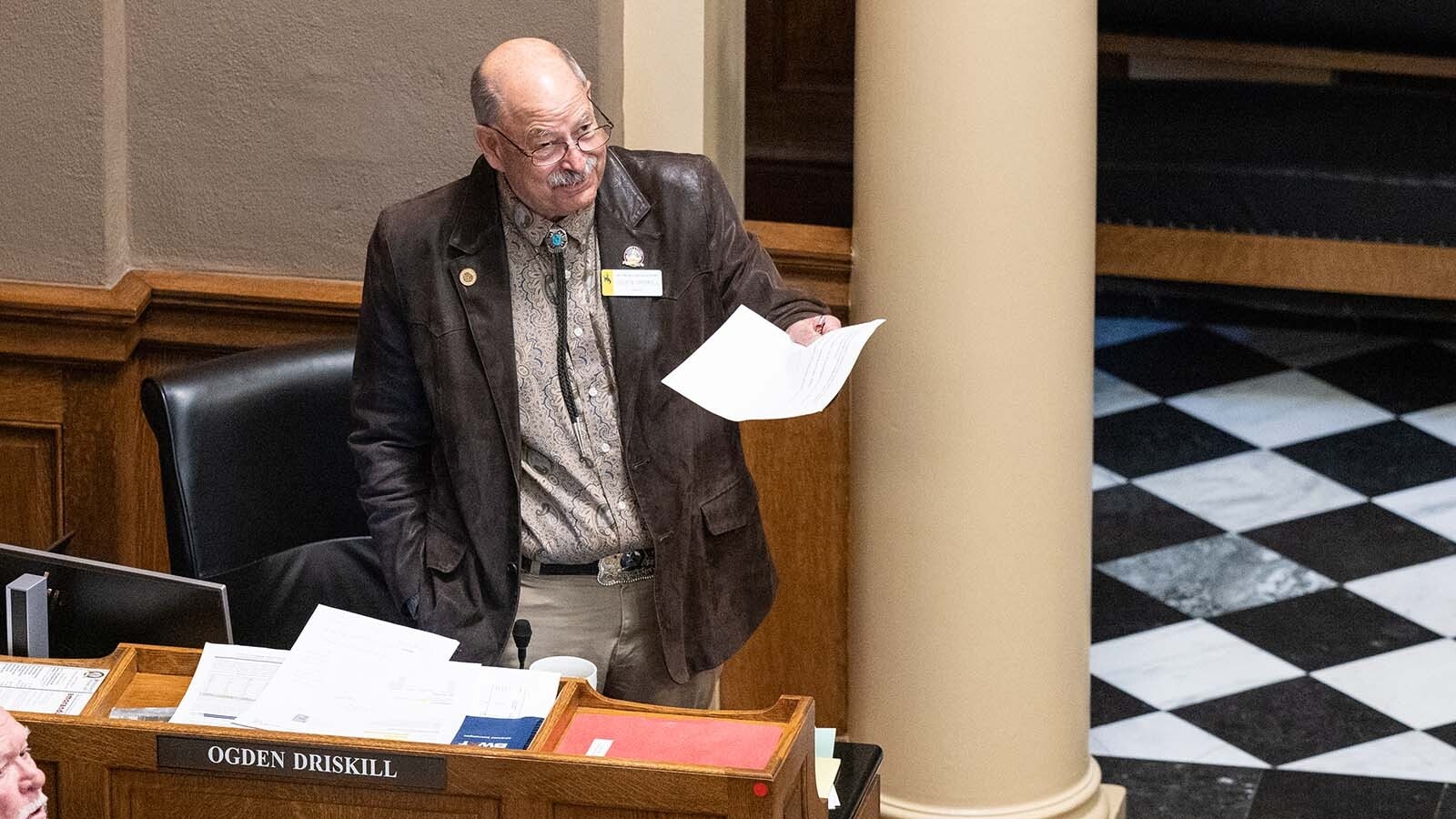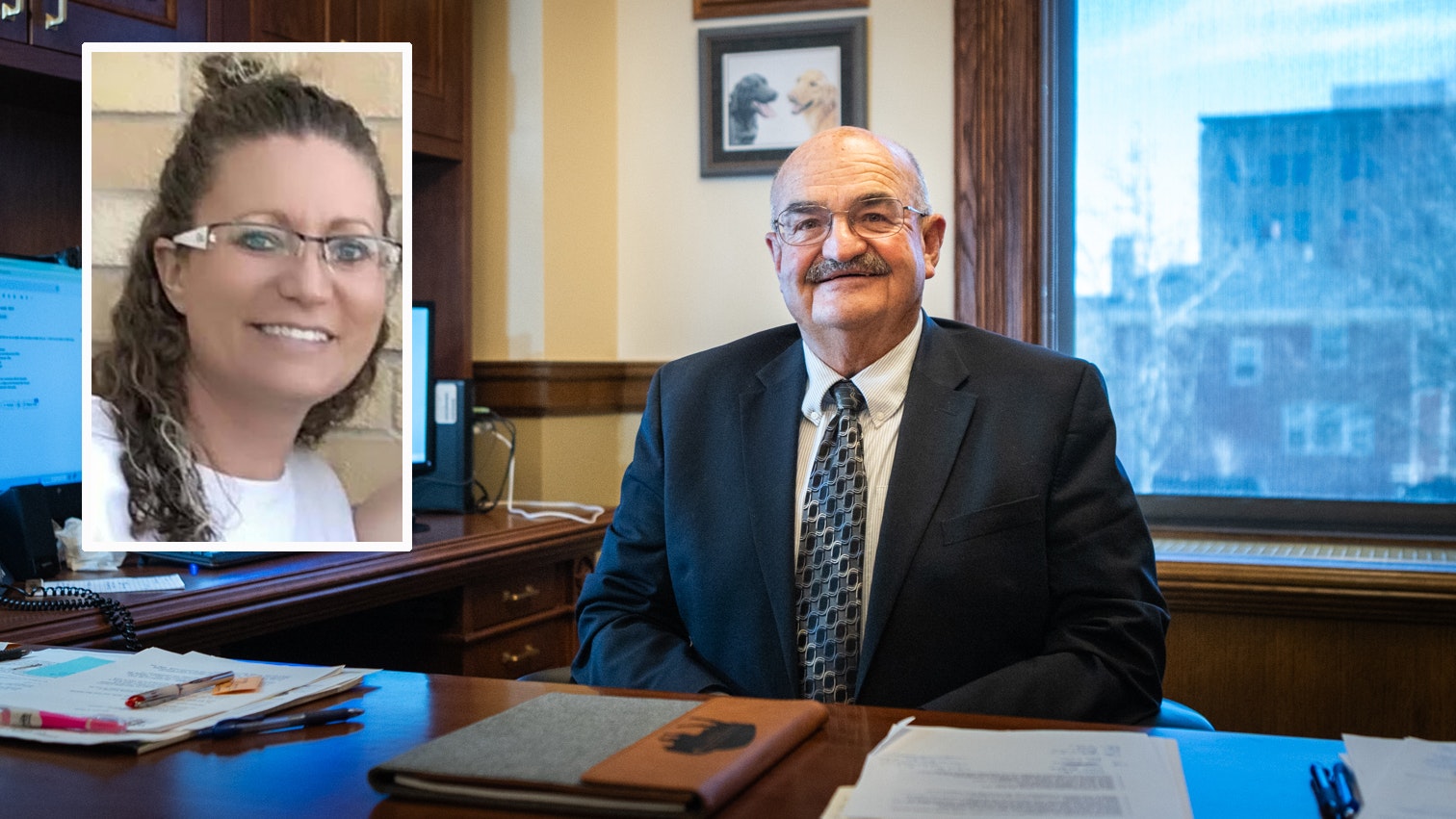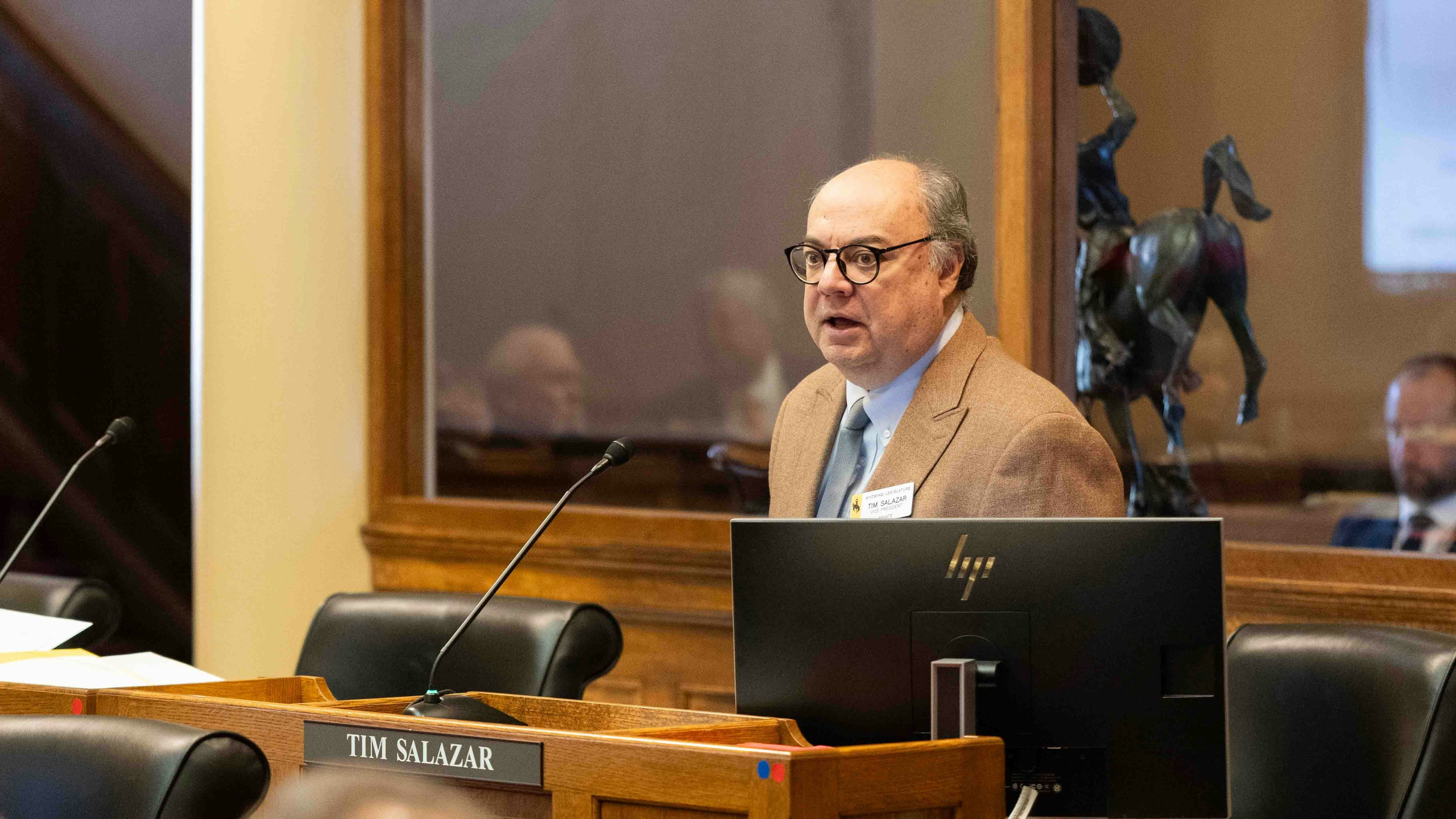Riverton residents voiced their opposition to Rocky Mountain Power’s requested rate hikes Monday, which combined would result in a nearly 30% increase in power rates.
The meeting was the second of a series of public listening sessions the Wyoming Public Service Commission (PSC) is holding in the lead up to its October hearing on the proposal.
As with an August meeting in Casper, Wyoming’s largest utility received no support for its request and an earful of opposition.
“Any prudent person looking at the facts could easily see that this is price gouging. It’s going to destroy so many families that I represent,” said Sen. Tim Salazar, R-Riverton.
The PSC will hold two more hearings — one in Laramie on Sept. 25 and another in Casper on Oct. 12.
Who Should Pay?
The people who spoke at the hearing blamed Rocky Mountain Power, Wyoming’s largest utility, for its investments in renewable energy, which they argued were only meant to serve non-Wyoming customers’ green energy goals.
The utility costs are shared across all states the utility services according to the amount of power a state’s customers consume. Wyoming's share of this allocation is 15%.
Rep. Lloyd Larsen, R-Lander, said that if California, Oregon and Washington want wind energy in their markets, Wyoming would be happy to provide it.
“But if that’s what they want, let their ratepayers bear the burden of those assets,” he said.
Wyoming had all the infrastructure and electrical generation sources to satisfy its own energy needs, Larsen added.

RMP’s Explanation
One of the two rate increases the utility is requesting is a general hike of 21.6%.
Stacy Splittstoesser, regulatory affairs manager for RMP, said the major driver of that requested increase was net power cost, which is what it costs the utility to provide power to customers.
She said that if the general rate increase were to be approved, the typical residential customer would see an average monthly increase of $16.20 for that increase.
Splittstoesser explained that in addition to the general rate increase, RMP in April requested an energy cost adjustment mechanism of 7.6%. This request is to recover costs of power bought on the markets, which includes higher natural gas prices in 2022. Coal-fired power, she said, also is increasing, along with coal prices.
Another factor is drought, which has decreased low-cost hydroelectric power.
Low-Cost Energy
Splittstoesser said that the company’s wind generation sources provide low-cost energy, but only when the wind is blowing.
As is the case with intermittent sources, this generation may or may not occur during times in which the power is needed.
Sometimes, Splittstoesser said, power costs can be offset by available cheaper wind power. She said the wind power is also subsidized with production tax credits, all of which the utility sends back to its customers.
This also reduces costs to its customers, she said.
When Wind Fails
While the RMP praises its investments in wind energy and points to increased cost of coal and natural gas as one of the drivers of the utility’s costs, Larsen said the company’s reliance on wind power is ultimately the reason its fossil fuel costs are rising.
Because RMP is retiring coal plants early, the plants are burning up their inventory of coal in preparation for a near-term shutdown. So, when the wind fails to produce enough power, as it will across wide regions frequently, the utility has to buy coal on the spot market, where it’s much more expensive.
The same is true for the natural gas costs the utility incurred during times of high demand and low wind resources, Larsen said.
“It’s really nice when the wind’s blowing and generating electricity. When it’s not, then you’ve got to get it from the traditional baseload,” Larsen said.
These are financial decisions RMP made, Larsen argued, and so the company should bear the consequences when its choices don’t pay off.
“I don’t know that that’s the customers’ fault,” Larsen said.

Hurting Businesses
The business community was also critical of the impacts of the requested rate increases.
“I believe it’s severely going to hurt our small business community in Riverton and Dubois,” Salazar said.
Kristen McClelland, a Riverton resident, said her family makes money off oil and gas. She works for a small oil field service company with fewer than 100 employees. She said that combined with the increases in fuel costs the company is incurring, an increase in electricity cost would likely be too much to bear.
“This rate increase will nearly put us out of business,” McClelland said.
She said her 20 years of experience in the oil and gas industry has given her knowledge of how futures and hedging work in fuel markets. Better planning for long-term fuel purchases pay off. She said if you hedge your bets and have to buy fuel on the spot market, that’s on you.
“So, a bad business decision on the part of Rocky Mountain Power should not fall on the citizens of Wyoming to take on when the oil prices crash and everybody around here loses their jobs,” McClelland said.
She said there are a lot of families that will struggle in Wyoming if the rate increase goes through.
It “will break their family. They will lose their homes. They will lose their vehicles. We’ve lost enough,” McClelland said.
Just And Reasonable
Rep. Tony Locke, R-Casper, said that the Public Service Commission has a responsibility, consistent with state law, to make sure rate increases are just and reasonable, and that they’re in the public interest. The proof that a rate increase request meets those standards is on the utility.
Therefore, Locke said, RMP has to demonstrate that the decisions it's made with regard to its assets were in the public interest.
He said that the oil and gas industry, which is a big consumer of electricity in the state, provides 50% of the state’s tax revenues. About 85% of the oil and gas companies operating in the state are small businesses that can’t incur the cost increase, he said.
One local business owner told Locke that the increase would amount to $5,000 per year in added business expenses.
Bad Choices
Former Wyoming state Sen. Eli Bebout, owner of Nucor Oil and Gas Inc., said RMP’s request does not meet the standards in state law for rates to be just and reasonable.
“We had reliable and dispatchable power in Wyoming. It was called coal-fired power plants,” Bebout said.
He said it was a bad decision on RMP’s part to begin eliminating coal as baseload power. He pointed to the experience in European countries, primarily Germany. The country is increasing its consumption of coal because it can’t satisfy its energy needs on wind and solar alone.
Meanwhile, China is building so many coal plants that it’s offsetting any emissions reductions from retired coal plants in the U.S.
“Why are we shutting down coal in America?” Bebout said.
No Free Lunch
David Miller, an economic geologist with a 40-year career in mining and a former Wyoming representative, questioned the argument for retiring coal plants to reduce global warming. He also pointed out that the increased use of coal in China and India was offsetting emission reductions in the U.S.
“As a geologist that understands the history of the Earth, it is clear we’re at one of the lowest CO2 levels of the last 100 million years,” Miller said.
Miller said that despite all promises that wind energy would lower rates, the utility’s requested rate increase demonstrates that’s not going to happen.
“When someone says something is free, it never is,” Miller said, and asked the PSC to deny the request.

